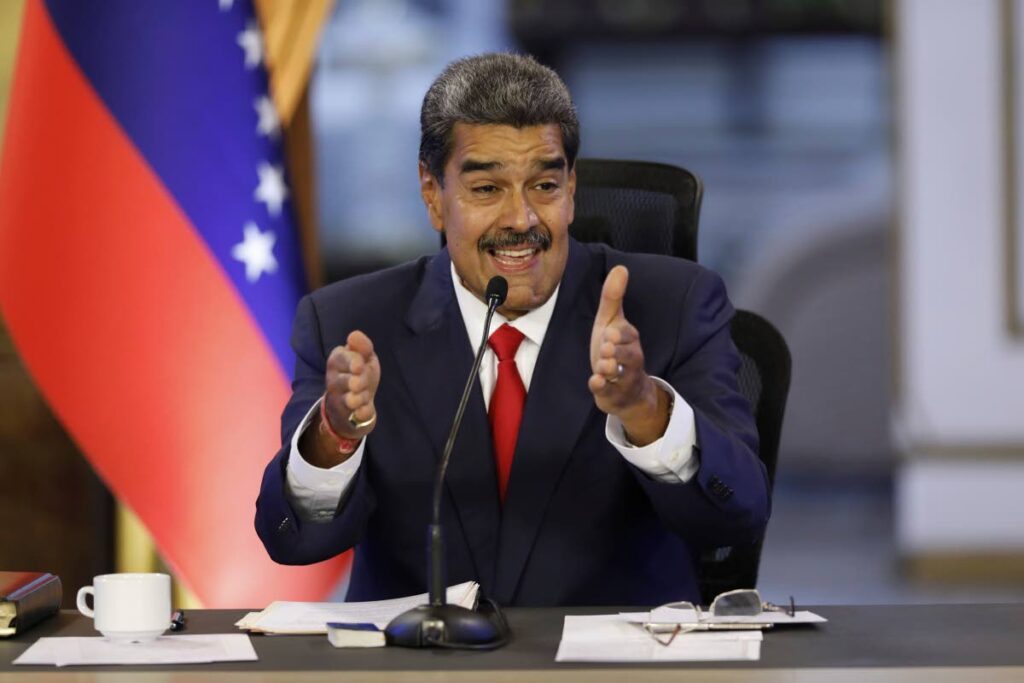What Maduro's 'victory' means for democracy

THE EDITOR: When Maduro agreed a few months ago to implement electoral reforms to give effect to the holding of free and fair elections for the presidency on July 28, he did so in order to influence the US to lift the economic sanctions imposed on Venezuela. As events unfolded, it was clear that he never intended to abide by the promises he made.
A few months later, he prohibited his main challenger, the widely popular Maria Corina Machado, from contesting elections for 15 years on spurious charges after she was overwhelmingly chosen by her party as the presidential candidate for the opposition. He then proceeded to jail many opposition figures and intimidate others in order to undermine the campaign of the opposition. He packed the National Electoral Council with his own cronies obviously with the intent to deliver a result in his favour regardless of the votes actually cast against him.
In the presidential campaign he openly declared, a la Trump, that if he unexpectedly lost the elections, there would be a blood bath in Venezuela implying that, in order to prevent such an eventuality, he should remain in power. Was he signalling that, in the event he lost the election, his security forces would deal brutally with those who opposed him? Is it any wonder that the National Election Council would declare Maduro winner with just 80 per cent of the votes counted without knowing the actual preferences of the remaining 20 per cent.
Any impartial assessment of the outcome of the election would indicate that Edmundo Gonzalez, Machado’s chosen presidential candidate, had received more votes than Maduro and was therefore the victor. There are a number of reasons for this conclusion. There were the massive rallies of support for Gonzalez side by side with Machado. All the election polls predicted a victory for Gonzalez and the Opposition. The National Electoral Council refused for many days to publish the tally of votes electronically enumerated at the 24, 532 voting stations fuelling credible speculation that the results were being manipulated. The opposition tally of the votes from the polling stations showed a two to one victory for Gonzalez. It is very likely that the hundreds of thousands experiencing the daily shortages of food, medication, housing and the lack of jobs would have voted for a change of regime. The relatives left behind in Venezuela of the more than 7.7 million Venezuelans who fled the country would surely have voted against Maduro. The support for Maduro among the security services, government workers, some recipients of state benefits and the dwindling cohort of the ideologically committed would surely amount to a minority of Venezuelans.
The reaction of the dictatorships allied to Maduro – China, Iran, North Korea, Russia was predictable. So were the majority of Caricom countries motivated by self interest and ideological fraternity. Either directly or indirectly most of them refused to support the OAS vote which merely called for a full and expeditious publication of the voting results according to the tally sheets.
Most of the countries of the world acknowledge the fraudulence but would remain non-committal. Even the US may be lukewarm to the idea of re-imposing sanctions on Venezuela. If Maduro’s manufactured victory is allowed to stand, all it means is that the free democratic nations of the world remain inert as autocrats boldly and with impunity continue their regimes of fraudulence, injustice, repression and dictatorship. In TT, we of course brace for more illegal immigrants.
TREVOR SUDAMA
San Fernando


Comments
"What Maduro’s ‘victory’ means for democracy"